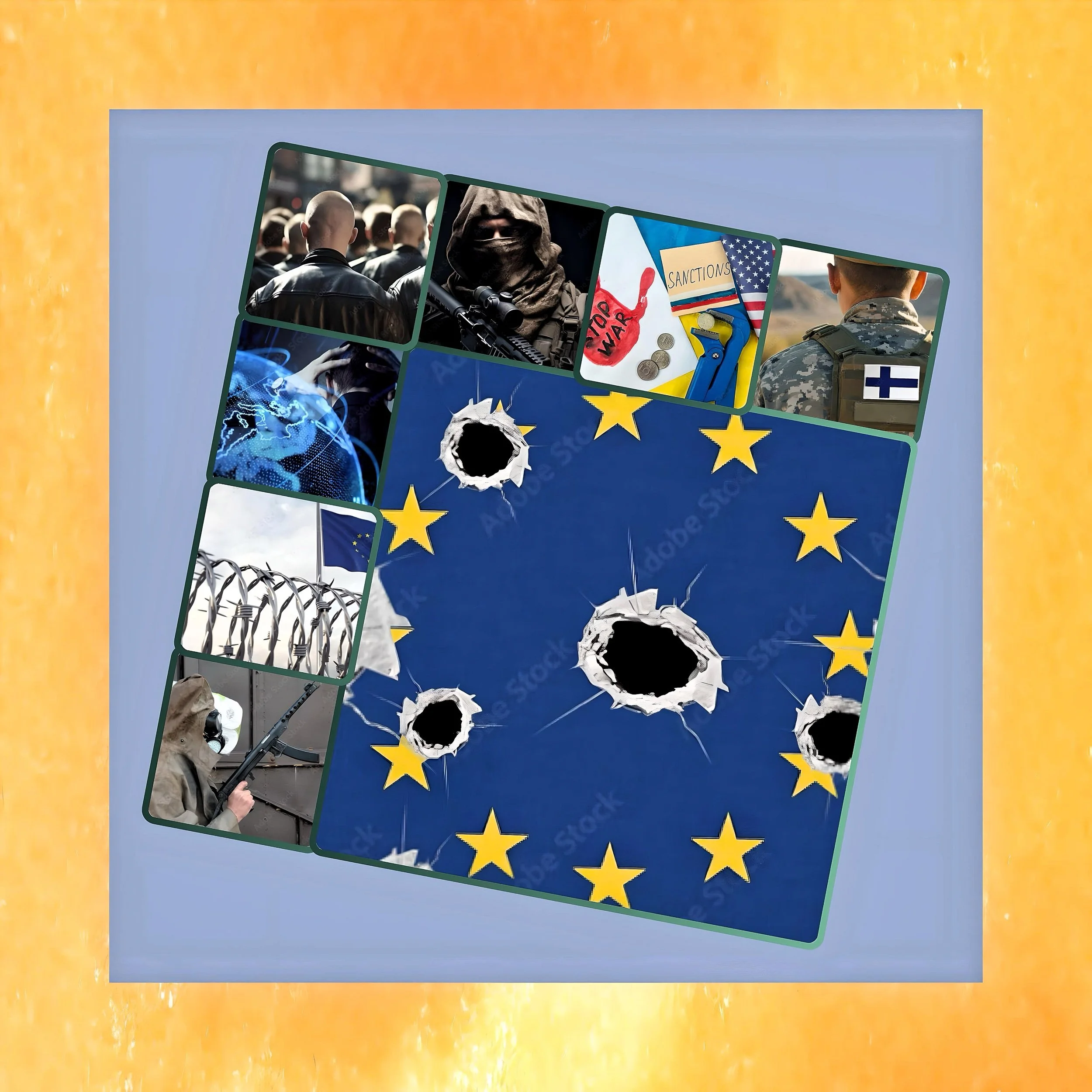Bosnia and Herzegovina in 2025: Historical Foundations, Political Fractures, and the European Integration Challenge
Introduction
Bosnia and Herzegovina is divided into two Entities – the Federation of Bosnia and Herzegovina and the Republika Srpska, which are politically autonomous to an extent, as well as the Brčko District, which is jointly administered by both. The Entities have their own constitutions.
Bosnia and Herzegovina (BiH) enters 2025 embroiled in its most severe constitutional crisis since the 1992–1995 war.
Republika Srpska (RS) leader Milorad Dodik’s conviction for defying state institutions exacerbates ethnonationalism tensions.
The political landscape remains defined by the legacy of the Dayton Peace Agreement, which established a decentralized state divided into the Bosniak-Croat Federation (FBiH) and the Serb-majority RS.
With BiH marking the 30th anniversary of Dayton in November 2025, the nation confronts existential questions about its sovereignty, EU accession prospects, and capacity to transcend entrenched divisions.
The article shares and further reviews the historical roots of BiH’s political architecture, the current leadership dynamics, and the complex interplay between domestic reform imperatives and European integration demands.
Historical Context: From Ottoman Rule to Post-Dayton Fragility
Ottoman and Austro-Hungarian Legacies (1463–1918)
BiH’s modern political contours trace back to its 1463 annexation by the Ottoman Empire, which introduced Islamic institutions and a millet system granting religious autonomy.
The Austro-Hungarian occupation 1878 modernized infrastructure but failed to resolve intercommunal tensions, leaving a legacy of competing nationalisms among Bosniaks, Serbs, and Croats.
Thep 1914 assassination of Archduke Franz Ferdinand by Bosnian Serb Gavrilo Princip precipitated World War I, after which BiH became part of the Kingdom of Serbs, Croats, and Slovenes.
Yugoslav Era and Socialist Federalism (1945–1992)
Post-World War II, Josip Broz Tito’s socialist Yugoslavia granted BiH republic status while suppressing ethnonationalist narratives.
The 1974 Constitution enhanced Bosnian autonomy, but economic disparities between regions sowed resentment.
By the 1980s, Slobodan Milošević’s Serbian nationalism and Franjo Tuđman’s Croatian separatism destabilized Yugoslavia’s delicate balance, culminating in BiH’s 1992 independence referendum.
War and Dayton’s Contested Legacy (1992–1995)
The 1992–1995 war, marked by ethnic cleansing and the Srebrenica genocide, claimed over 100,000 lives.
The Dayton Peace Agreement ended hostilities but institutionalized ethnic divisions through a tripartite presidency and entity-based governance. While ending violence, Dayton created a labyrinthine bureaucracy: 14 governance layers in the FBiH alone, paralyzing decision-making and enabling corruption.
Contemporary Political Architecture: Entities, Institutions, and Leaders
The Presidency and State-Level Governance
BiH’s collective presidency—comprising Bosniak Denis Bećirović (SDP), Serb Željka Cvijanović (SNSD), and Croat Željko Komšić (DF)—embodies Dayton’s power-sharing model.
However, entity loyalties often supersede state cohesion. The presidency’s rotating chairmanship, currently held by Cvijanović until November 2025, struggles to coordinate foreign policy amid RS’s secessionist rhetoric.
Republika Srpska: Dodik’s Autonomy Push
RS President Milorad Dodik (SNSD), in office since 2022, has intensified efforts to erode state institutions.
His February 2025 conviction for refusing to implement High Representative Christian Schmidt’s laws triggered RS’s adoption of the Law on Non-Application of State Laws, banning federal judicial and security agencies from RS territory.
Dodik’s alignment with Russia and Serbia—evidenced by awarding Vladimir Putin the Order of Republika Srpska in 2023—contrasts with BiH’s EU aspirations.
Federation of BiH: Fragile Coalitions and Economic Struggles
The FBiH faces crises, including a disputed minimum wage hike to 1,000 KM (€500) enacted without employer consultation.
This policy, coupled with a 71% tax levy, risks exacerbating unemployment, which is already at 16%.
Prime Minister Borjana Krišto’s government, reliant on Bosniak-Croat coalitions, struggles to address corruption and entity-level disputes over energy pricing reforms demanded by the EU.
Constitutional Crisis and RS’s Secessionist Gambits
Legal Rebellion Against State Institutions
RS’s February 2025 legislation rejecting the Constitutional Court’s authority represents the most direct challenge to Dayton’s framework.
The laws, temporarily suspended on March 8, 2025, aim to nullify federal oversight, prompting EU condemnation as “destabilizing.” Legal experts emphasize that entity legislatures lack constitutional authority to override state laws, yet Dodik’s defiance continues unabated.
Geopolitical Alignments: Russia, Serbia, and Western Responses
Dodik’s alliance with Serbia’s Aleksandar Vučić and Russia complicates BiH’s foreign policy.
Serbia’s National Security Council denounced Dodik’s conviction as “unlawful,” while NATO Secretary General Mark Rutte’s March 2025 Sarajevo visit reaffirmed support for BiH’s territorial integrity.
The U.S. has drafted contingency plans for BiH’s territorial reorganization, potentially dissolving entities into regions—a proposal RS vehemently opposes.
EU Accession: Progress Stalled by Political Dysfunction
Candidate Status and Reform Backsliding
BiH attained EU candidate status in December 2022, but accession negotiations hinge on 14 key priorities, including judiciary reforms and anti-corruption measures.
The European Commission’s 2024 report noted “regrettable stagnation,” particularly in aligning RS’s legal system with EU standards.
The €1 billion Growth Plan for the Western Balkans remains unimplemented due to entity disputes over fiscal decentralization.
The Dayton-to-Brussels Dilemma
EU High Representative Josep Borrell has framed 2025 as a make-or-break year, urging BiH to transition from Dayton’s ethnic power-sharing to Brussels’ civic integration model.
However, constitutional reforms require RS approval, which Dodik’s government withholds.
The EU’s March 2025 statement condemned RS’s laws as incompatible with Stabilization and Association Agreement obligations.
Socioeconomic Challenges
Emigration and Institutional Decay
Demographic Collapse and Brain Drain
BiH’s population has plummeted from 4.4 million in 1991 to 3.2 million in 2025, with 500,000 emigrating since 2013. Youth unemployment exceeding 30% drives this exodus, depriving sectors like healthcare and IT of skilled workers.
Remittances, comprising 10% of GDP, sustain consumption but hinder productivity growth.
Corruption and Judicial Paralysis
Transparency International ranks BiH 110th in corruption perception, with entity-level graft networks siphoning €350 million annually from public contracts.
The four parallel judicial systems (state, FBiH, RS, Brčko District) create jurisdictional chaos, delaying high-profile cases like Dodik’s by an average of 595 days.
International Mediation and Future Pathways
The High Representative’s Waning Influence
Christian Schmidt’s contested mandate is criticized for prioritizing technical reforms over structural issues.
His March 2024 electoral law amendments, introducing digital voting pilots, drew RS’s ire, with Dodik threatening to expel Western ambassadors.
The Office of the High Representative (OHR) struggles to reconcile its peace enforcement role with BiH’s EU integration process.
NATO and EUFOR’s Security Roles
NATO’s Sarajevo Headquarters coordinates defense reforms, but RS’s boycott of state-level security initiatives undermines progress.
The EUFOR Althea mission, reduced to 1,100 troops, lacks authority to address political crises, reflecting broader Western strategic ambivalence.
Conclusion
Between Disintegration and Europeanization
BiH’s survival hinges on reconciling competing visions of statehood.
Immediate priorities include
Constitutional Overhaul
Transitioning from Dayton’s ethnic quotas to civic equality, as urged by the Venice Commission.
Anti-Corruption Mechanisms
Implementing the EU’s Pakt za BiH to unify judicial appointments and audit public contracts.
Economic Harmonization
Utilizing the Growth Plan to integrate entity markets and attract FDI in renewable energy.
As the Dayton anniversary approaches, BiH’s leaders must choose between perpetuating ethnonationalist patronage or embracing reforms that secure EU membership.
With U.S. and Turkish mediation proposals gaining traction, 2025 could either mark Dayton’s evolution or collapse under the weight of unfulfilled promises.






